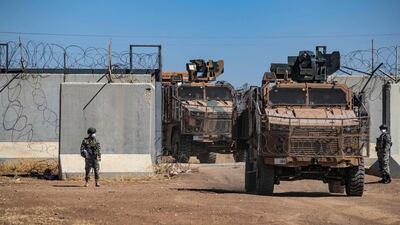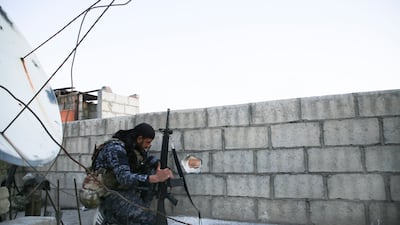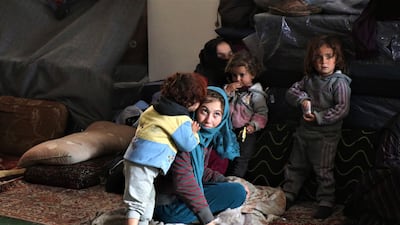The Syrian government and the Kurdish-led Syrian Democratic Forces, a US-backed militia in parts of northern and eastern Syria, have warned Turkey against carrying out a military incursion into the north of the country.
“The aggressive threats by the Turkish regime are a flagrant violation of international law and the territorial integrity and sovereignty of Syria,” the Syrian Foreign Ministry said in a statement carried by Sana, the state news agency.
Turkish President Recep Tayyip Erdogan said Saturday his country needed to begin a military incursion against the Syrian-Kurdish fighters of the People’s Protection Units, or YPG, the lead organisation within the Syrian Democratic Forces, a mostly Kurdish militia group that worked closely with US forces during the war on ISIS.
Turkey views both groups as affiliates of the Kurdistan Workers’ Party, or PKK, which is designated as a terrorist organisation by Turkey, the US and the EU.
For years, Turkey has launched military operations and air raids on PKK strongholds in the mountains of northern Iraq. In 2015, a two-and-a-half year long ceasefire between PKK and Turkey broke down, which reignited a four-decade long conflict.
Mr Erdogan said the military operation will help establish a 30-kilometre area he has planned in northern Syria, which he calls a "safe zone".
“We will address the shortcomings of the secure strip we established at our southern borders through new operations,” he said at a weekend gathering of MPs belonging to his Justice and Development Party.
“A depth of 30 kilometres from our borders is considered to be our security zone, and we don’t want attacks launched against us from that area.”
Mr Erdogan was reiterating a pledge he made at the Turkish parliament on Wednesday.
Turkey hosts more than four million Syrian refugees displaced by more than 11 years of civil war triggered after a 2011 uprising against the regime of President Bashar Al Assad.
Risk of escalation
The Syrian government said any new Turkish military offensive will lead to more instability and could derail a 2017 agreement sponsored by Russia and Iran to create de-escalation zones in northern Syria.
Recent years have seen deadly encounters, including a series of clashes between Syrian government forces and Turkish troops in northern Syria. Ankara blamed the Syrian regime for a deadly shelling in March 2020, which killed 34 Turkish troops and responded with heavy air attacks against Syrian forces using drones.
In the same month, Syria accused Turkey — a Nato member — of shooting down two of its jet fighters in the region. Syrian airspace is also patrolled by Russia aircrafts.
The Turkish threats also drew condemnation from the SDF, which created a semi-autonomous region in northern Syria shortly after 2011, with the support of US Special Forces and later, a small deployment of US infantry.
“We are concerned about new Turkish threats which pose high risk on northern Syria," said SDF General Commander Mazloum Abdi on his official Twitter account.
"Any offensive will divide Syrians, create a new humanitarian crisis, and displace original inhabitants and IDPs [internally displaced persons]. New escalation will also negatively affect our campaign against ISIS.”
The SDF played a pivotal role in defeating ISIS with the help of US air support, but has struggled to stabilise areas it controls, which are home to displaced civilians and towns in dire need of more reconstruction funding.
Last January, the SDF put down — with support from US special forces — a major attack by ISIS militants, who tried to free thousands of suspected members from a prison in the north-eastern city of Hasakeh. The battle lasted for more than two weeks, raising fears of a renewed resurgence of ISIS in the region.















